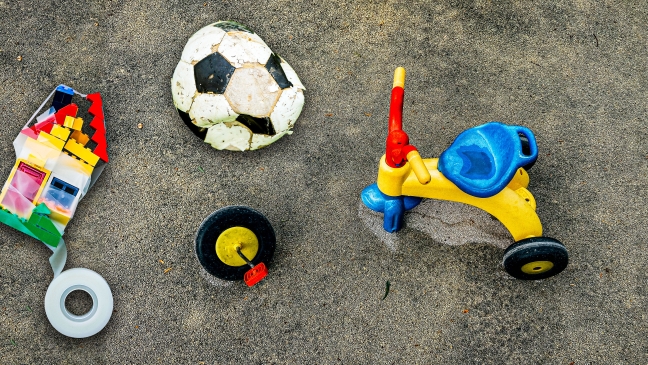“We are essentially very poor.”
This was the depressing message delivered by our headteacher at our first staff meeting of this academic year. His words were a reminder to be frugal with everything: turn off the lights, limit unnecessary photocopying and don’t order anything without authorisation.
No further explanation was needed. We are all acutely aware that our budget is far from healthy. The situation is becoming drastic, and I know that we are not alone. In many schools, years of underfunding are finally coming to a head.
In the centre of our outdoor area stands a well-loved wooden play hut, which now looks like the Leaning Tower of Pisa. I am loath to get rid of it because it is one of the few large pieces of equipment that the children have left in a garden that is already full of empty spaces, where old equipment has been removed and not replaced.
A panel fell off the hut this week but I just begged the caretaker to work his magic and repair it yet again.
It’s the same inside the classroom: I have been known to fish broken toys out of the bin to fix them because I know that once they are gone, there will be no replacement.
Every day resources are diminishing: staff, equipment, books, clubs. Even the school minibus is now under threat. Each year I think the situation can’t get any worse. And then it does.
Lack of school funding: the effect on teaching
We do what we can with what we have, but it’s really not possible to run a school on a shoestring budget.
I worry that the “resource poverty” we are experiencing means that children are more limited in the skills they can practise. We are constantly collecting, making and borrowing things to make sure we are providing pupils with the opportunities they need.
Currently I am trying to think creatively about how to provide water play because we have had to throw away our damaged water tray and - yes, you‘ve guessed it - we can’t afford to buy a new one.
Read more:
Another worrying result of underfunding is the impact on staffing. With fewer adults in the room, things can feel very stretched, and children who need additional support are hit worse by that. You cannot provide high-quality interactions and model skills as effectively when you are working with reduced adult numbers.
The indirect effects on staff are also huge. Where people feel they are carrying too great a load and having to struggle without enough support, this can lead to work-related stress and deteriorating mental health.
We worry deeply about children’s safety, and feel responsible. It really affects morale. We all need adequate resources, funding and pay to make us feel valued.
How do we manage?
Underfunding is a problem that shouldn’t be left up to schools to fix. Nevertheless, that’s exactly what is happening. So, how are we managing?
In my school we have a few strategies that help us to work with the limited funding that we have.
1. Parent contributions
We rely on an annual voluntary contribution from parents to cover activities like gardening, cooking and crafts. It is gratefully received because, without it, we would be so much more limited in the experiences that we can provide for the children.
2. Working with local groups
We belong to a local “scrapstore” - an organisation that collects and saves items that would otherwise be thrown away, so they can be used for art and craft projects. This helps to replenish our craft resources.
To help us repair and build equipment at a reduced cost, we use the services of a local group of retired carpenters, which is part of the Men’s Sheds organisation.
3. Shopping second-hand
We collect lots of unwanted second-hand books, toys and equipment from parents and are always on the lookout for resources in charity shops and at car boot sales. I am constantly looking for freebies and thinking about how we could use them at school.
4. Applying for grants
There will often be local grants up for grabs that can help you with funding for a specific area of the curriculum. A few years ago we managed to secure a Local School Nature Grant from Learning Through Landscapes. This provided us with some fantastic free equipment and training to support our outdoor learning.
5. Leaning on one another
I am so grateful for our wonderful early years foundation stage (EYFS) team. They show such resilience in getting on with the job in difficult times. It shouldn’t have to be this way, but they continue to try to make something out of nothing and inspire the children. They really are the most valuable resource in the room.
Helen Pinnington is the early years foundation lead at St Thomas More’s Catholic Primary School in Bedhampton, Hampshire
For the latest research, pedagogy and practical classroom advice delivered directly to your inbox every week, sign up to our Teaching Essentials newsletter





